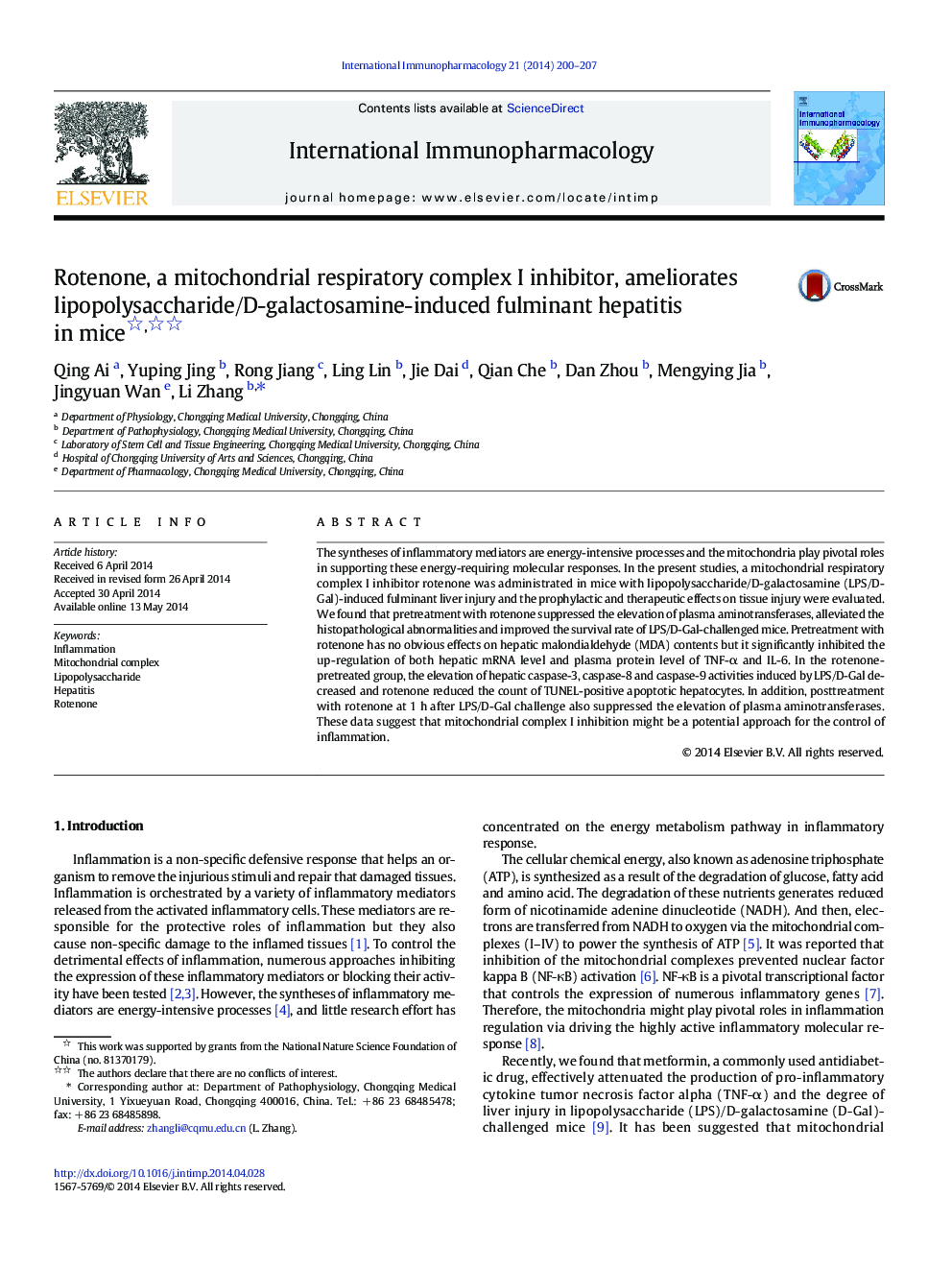| Article ID | Journal | Published Year | Pages | File Type |
|---|---|---|---|---|
| 5832672 | International Immunopharmacology | 2014 | 8 Pages |
â¢Pretreatment with rotenone alleviated LPS/D-Gal-induced liver damage.â¢Rotenone suppressed inflammatory cytokine expression and hepatic apoptosis.â¢Rotenone improved the survival rate of LPS/D-Gal-challenged mice.â¢Posttreatment with rotenone also suppressed the elevation of aminotransferases.
The syntheses of inflammatory mediators are energy-intensive processes and the mitochondria play pivotal roles in supporting these energy-requiring molecular responses. In the present studies, a mitochondrial respiratory complex I inhibitor rotenone was administrated in mice with lipopolysaccharide/D-galactosamine (LPS/D-Gal)-induced fulminant liver injury and the prophylactic and therapeutic effects on tissue injury were evaluated. We found that pretreatment with rotenone suppressed the elevation of plasma aminotransferases, alleviated the histopathological abnormalities and improved the survival rate of LPS/D-Gal-challenged mice. Pretreatment with rotenone has no obvious effects on hepatic malondialdehyde (MDA) contents but it significantly inhibited the up-regulation of both hepatic mRNA level and plasma protein level of TNF-α and IL-6. In the rotenone-pretreated group, the elevation of hepatic caspase-3, caspase-8 and caspase-9 activities induced by LPS/D-Gal decreased and rotenone reduced the count of TUNEL-positive apoptotic hepatocytes. In addition, posttreatment with rotenone at 1 h after LPS/D-Gal challenge also suppressed the elevation of plasma aminotransferases. These data suggest that mitochondrial complex I inhibition might be a potential approach for the control of inflammation.
